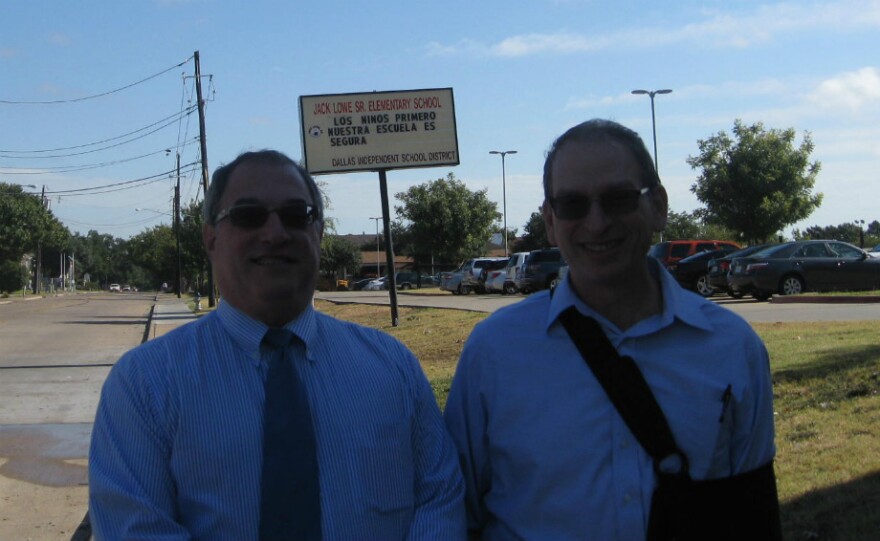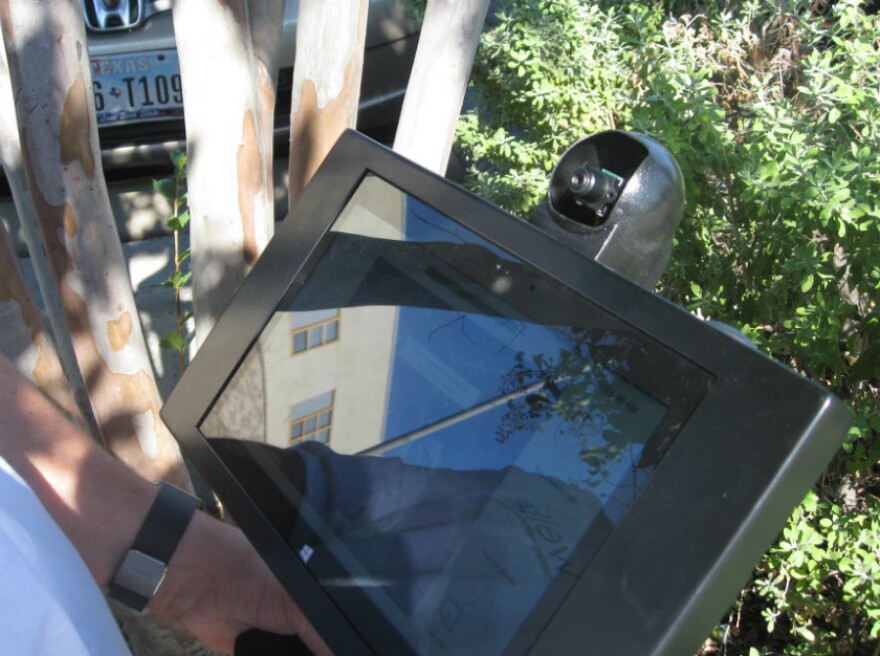New high-tech scanners that can read a person’s body temperature without touching went into five Dallas schools Monday near the apartment where Ebola patient Thomas Duncan stayed. The idea is to catch sick kids early in the extremely rare chance they have the virus.
A Local company called Wello decided now was good time to donate the scanners to Dallas ISD, where five students had come in contact with Duncan.
“We live here, we’re concerned about the kids and the environment, and we want to make sure our technology is beneficial to anyone who can use it,” said Alan Bach, who works for Wello.
The company’s little scanner focuses on the canthus gland on the inside corner of the eye. That’s where the body’s temperature can be accurately read.
“So anyone who has a temperature reading over 99.5, an alert will be sent. The nurse is with them while the screening’s taking place,” Bach said.
If the scanner identifies a student with fever, that must be verified by a thermometer. DISD’s director of Health Services, Suzanne Kubelka, likes the device, which looks like a little rotating camera sitting atop a computer screen.
Kids look into the screen, and wait three seconds while sensors take readings.

“I loved the way that it’s totally hands free,” Kubelka said. “We don’t have to worry about cleaning an instrument every single time we take it. It’s almost like they enjoyed to do it. So it’s a good little thing for them.”
Kubelka also likes that nurses don’t have to touch a possibly contagious kid. DISD’s Nurse Supervisor Leigh Pelletier says she initially worried about the scanner’s accuracy. But Monday morning, it identified a student with a 101-degree fever that a thermometer confirmed.
“I saw another student come into the high school and her mother was with her,” Pelletier said. “The kids really do like it. It’s almost like a toy for them. They really don’t mind having their temperature taken at all with this. The mother thought it was also pretty cool.”
Murray Cohen was with the CDC for two decades before becoming a consultant for Wello. He sees this scanner as a modern, reliable version of checking an ailing child’s temperature by gently place a palm on the forehead.
“That’s a very effective tried-and-true qualitative measuring tool. Ours is a very specific, accurate, quantitative screening tool,” Cohen said.
Cohen adds this device, which sells for about $2,500, was designed for employers to catch workers early who might have something contagious.
“We keep other workers healthy,” Cohen said, “by keeping sick people out of the workplace.”
Or, in this case, keep other students healthy by keeping the sick ones out of class. The Dallas schools plan to keep the donated machines in place for at least several weeks.
Video: Watch the scanner in action





